
The cost of a tar and chip driveway falls between gravel and asphalt. Is this unique process the happy medium you've been looking for? Let's take a look.
Learn the differences between these landscaping superstars


Asphalt is better suited to highways or any place where there will be heavy loads.
Pavement requires less maintenance than asphalt—regular power washing is all that is needed.
Asphalt can become tacky in hot weather, but won’t crack like pavement will under freezing. temperatures
Asphalt takes less time to install, but both require the help of a professional.
You might hear people use asphalt and pavement interchangeably, but they are two different materials. If you are considering one or the other for your driveway, walkway, or other landscaping needs, it’s important you know the key differences between the two before you make a decision—asphalt, for instance, is better in colder climates while pavement thrives in warm places. Read on to learn what makes asphalt and pavement distinct from one another so you can choose the best option for your home.
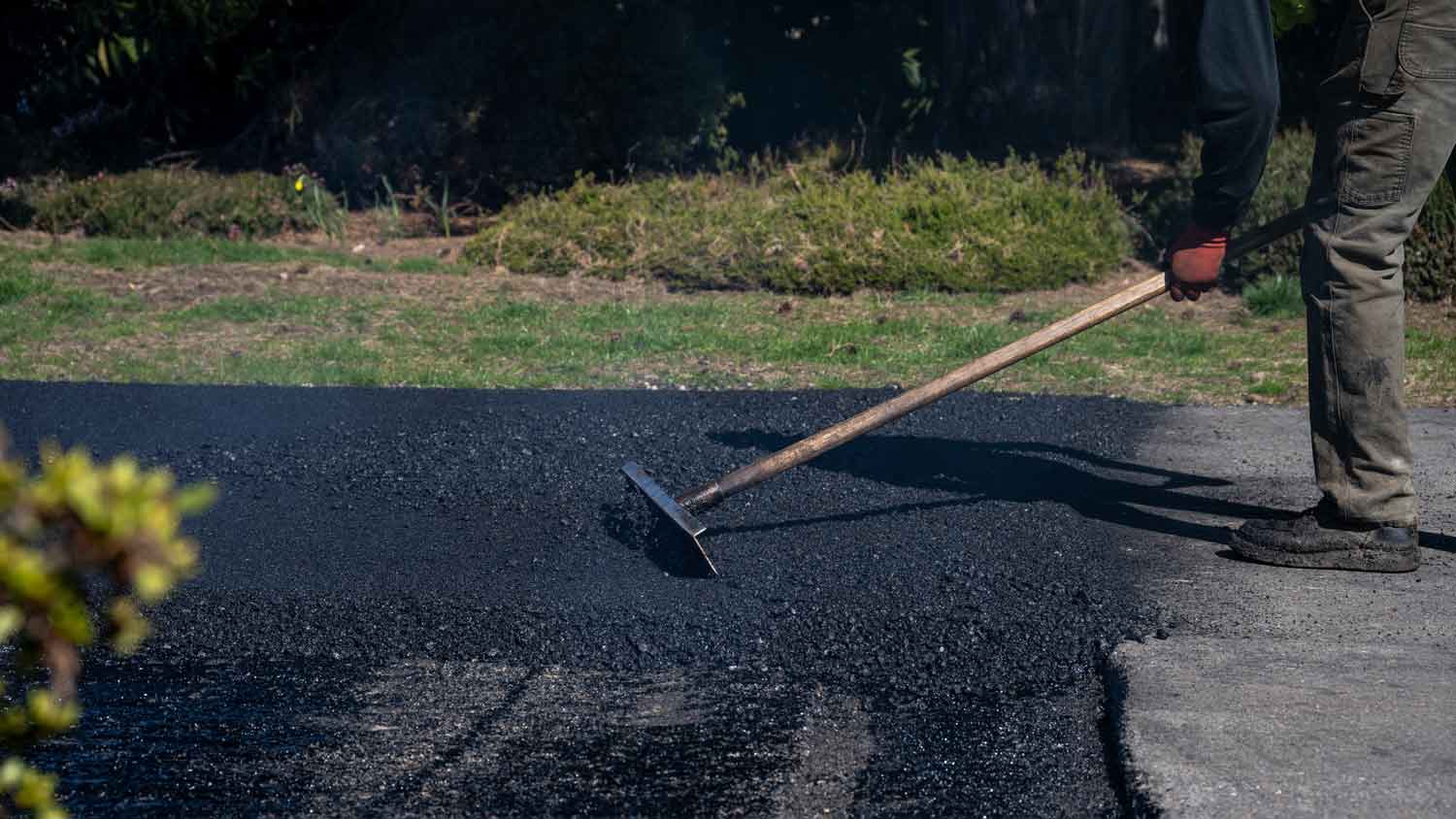
Asphalt is a paving material made from hot Bitumen, a dark, petroleum-based liquid substance found in the earth. Pavement, however, is made from a mix of materials, which might include asphalt but can also include concrete and gravel. A binding material ensures that the materials adhere and become a solid mass.
Asphalt is often used for roads as it is more flexible than pavement, allowing it to absorb the shock from cars better than pavement. Pavement is more commonly found on sidewalks and pathways.
| Type of Difference | Asphalt | Pavement |
|---|---|---|
| Maintenance | Must be sealed months after installation, then every 2-3 years | Regular power-washing is all that is needed |
| Lifespan | 30 years | 50 years |
| Cost | $7 to $15 per square foot | $6 to $12 per square foot |
| Installation | Ready in 24 to 48 hours | Takes several days to cure |
| Durability | Can withstand heavy loads and traffic | Cracks easier than asphalt; better suited to walkways |
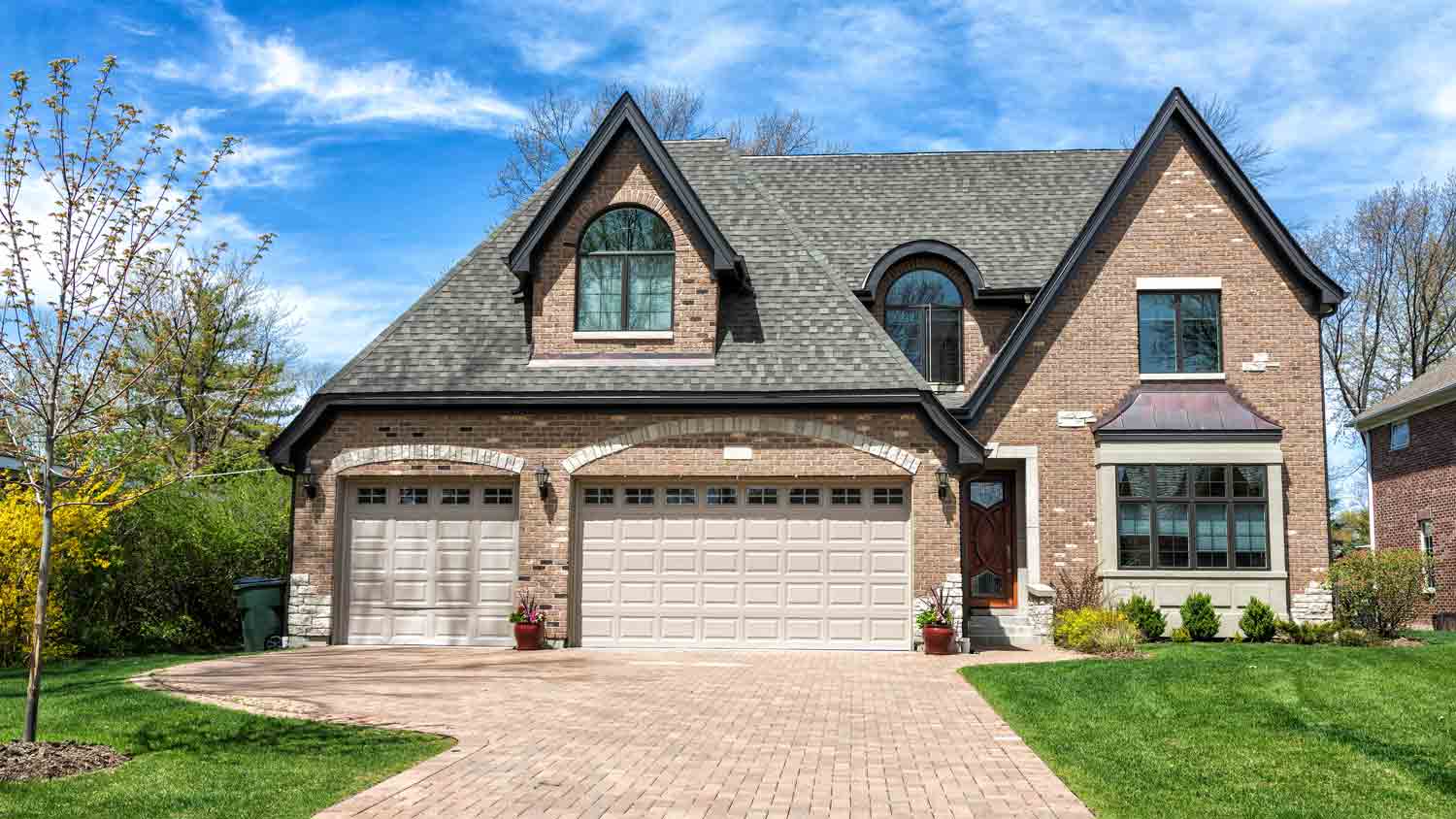
The main difference between pavement and asphalt is that because of asphalt’s flexibility, it is much better at withstanding heavy loads, such as that from motor vehicles. It’s also able to be installed and ready for use within a day or two, while pavement requires several days to cure. There are other differences to consider, however, before making a decision for your home.
Asphalt, while slightly less expensive upfront, does require more maintenance than pavement, which can make it a costlier option in the long run. Asphalt needs to be sealed regularly—every few years—while pavement can be power washed every now and then but is by-and-large maintenance free.
The materials are priced similarly, with the cost of asphalt running between $7 and $15 per square foot and pavement running between $6 and $12 per square foot. That said, pavement has a longer lifespan and requires less maintenance than asphalt.
Asphalt is less prone to cracking in colder climates—the material is less porous, so water isn’t able to soak through and freeze. Asphalt is also more flexible than pavement, allowing it to adapt to changes in soil pressure. This can be useful if you live somewhere with clayey soil that expands and contracts with changes in moisture. That said, asphalt can become tacky in high heat, making pavement a better option in warm climates.
Asphalt lasts between 15 and 30 years, while pavement can last for 30 to 50 years with proper maintenance.
Unfortunately, asphalt is only available in one option: black, and with zero finish options. Pavement, on the other hand, can be customized to match a home’s aesthetic and design. Homeowners can choose from a variety of colors and patterns.
Both asphalt and pavement will require the services of a local asphalt or paving pro, but it’s worth noting that the installation process for asphalt is much quicker than pavement—it dries and is ready for use within a day or two. Pavement takes several days to cure before it can handle any pressure or use.
From average costs to expert advice, get all the answers you need to get your job done.

The cost of a tar and chip driveway falls between gravel and asphalt. Is this unique process the happy medium you've been looking for? Let's take a look.
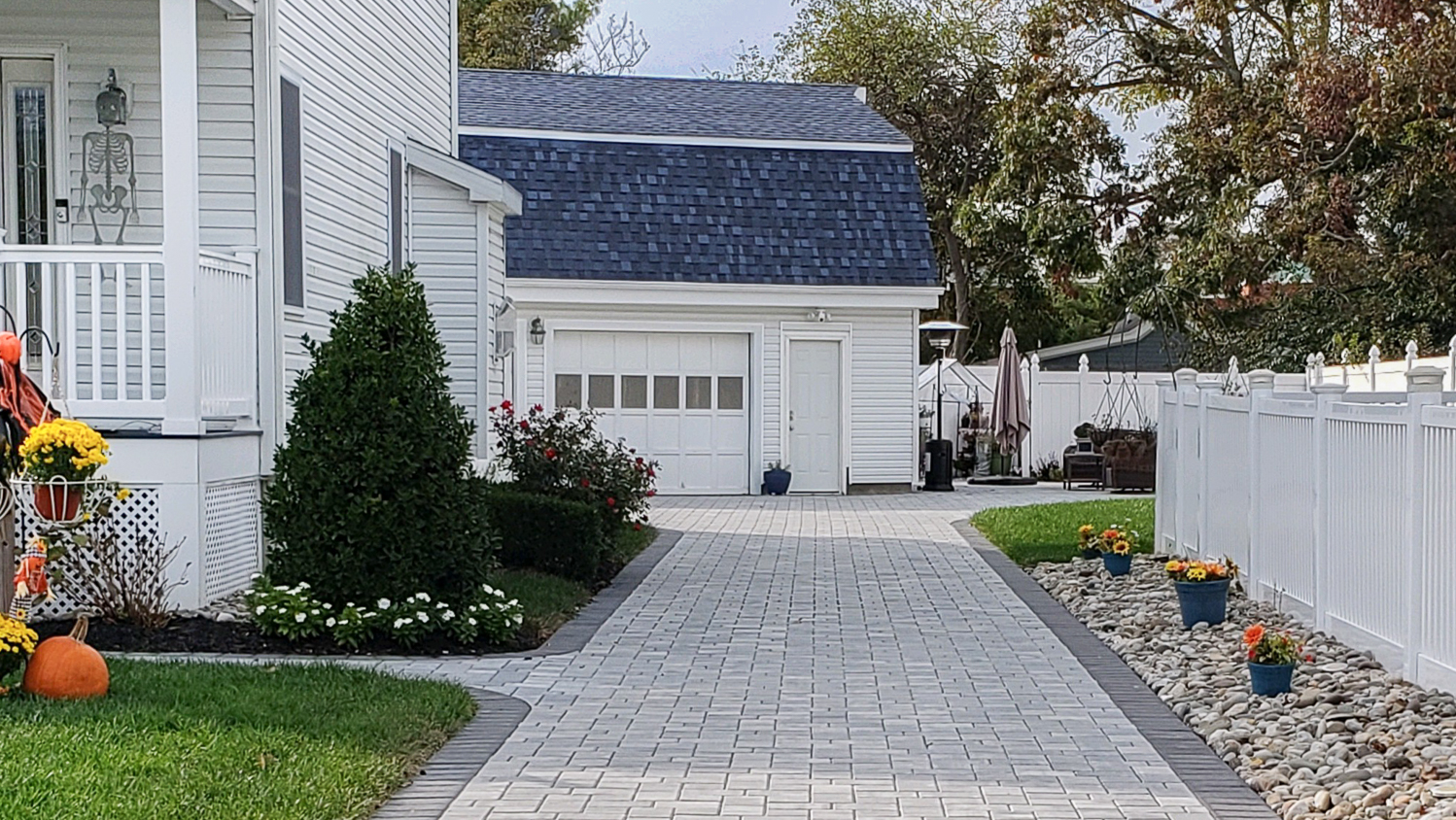
Discover the average paver driveway cost, including price ranges, key cost factors, and tips to help you budget for your driveway project.

Don’t knock it until you try it. A heated driveway can save you a lot of manual labor in colder months. Here’s a breakdown of the cost of a heated driveway.

Tired of staring at your driveway cracks? Learn how to fix them the right way and keep those cracks from turning into potholes.
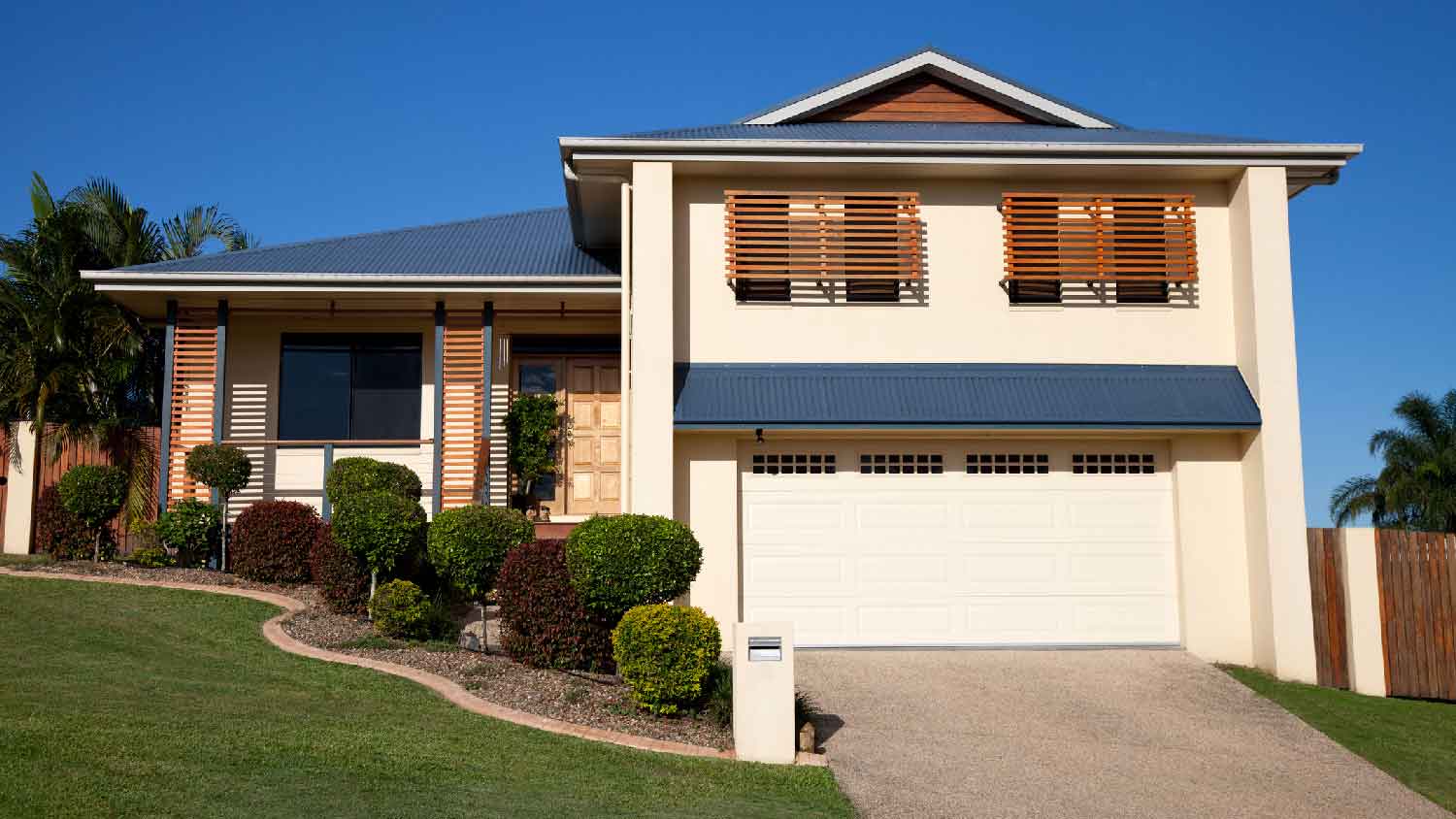
You should not fill potholes in your driveway with mulch. Repair potholes with proper base material and then reseal.
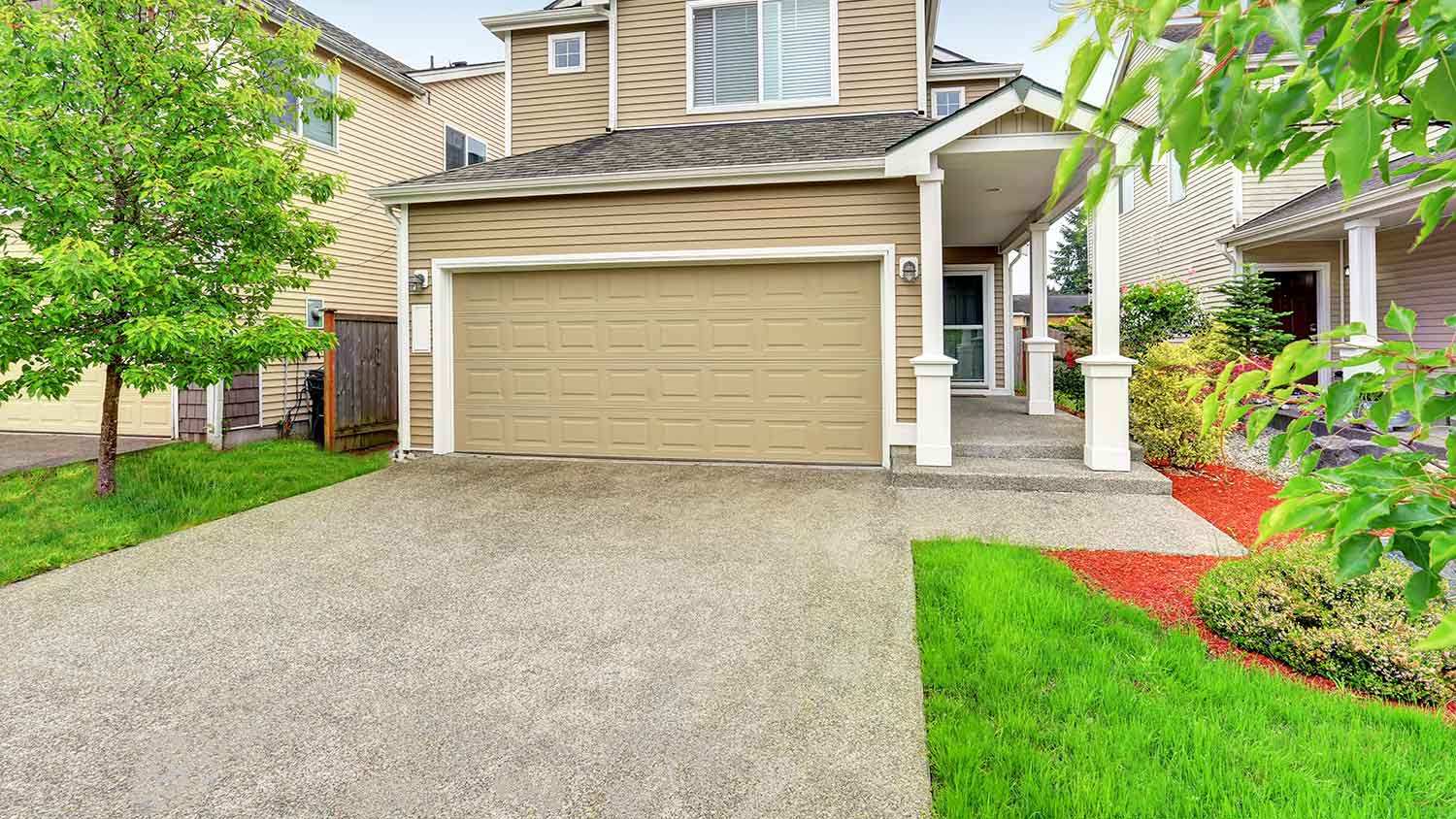
Chip seal and asphalt are both common pavement options for roads and driveways. They are different in cost, application, durability, and appearance.